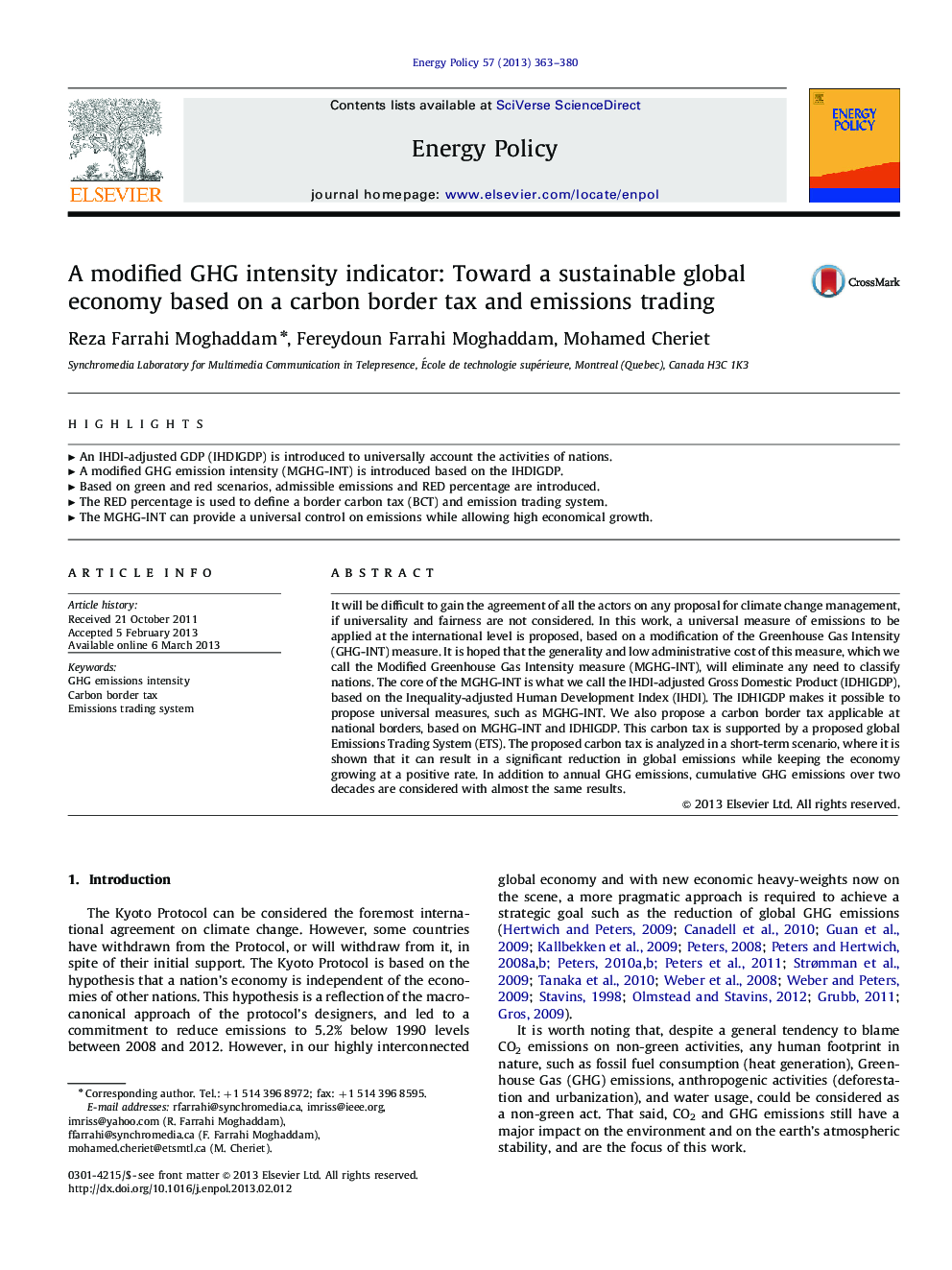| Article ID | Journal | Published Year | Pages | File Type |
|---|---|---|---|---|
| 992981 | Energy Policy | 2013 | 18 Pages |
It will be difficult to gain the agreement of all the actors on any proposal for climate change management, if universality and fairness are not considered. In this work, a universal measure of emissions to be applied at the international level is proposed, based on a modification of the Greenhouse Gas Intensity (GHG-INT) measure. It is hoped that the generality and low administrative cost of this measure, which we call the Modified Greenhouse Gas Intensity measure (MGHG-INT), will eliminate any need to classify nations. The core of the MGHG-INT is what we call the IHDI-adjusted Gross Domestic Product (IDHIGDP), based on the Inequality-adjusted Human Development Index (IHDI). The IDHIGDP makes it possible to propose universal measures, such as MGHG-INT. We also propose a carbon border tax applicable at national borders, based on MGHG-INT and IDHIGDP. This carbon tax is supported by a proposed global Emissions Trading System (ETS). The proposed carbon tax is analyzed in a short-term scenario, where it is shown that it can result in a significant reduction in global emissions while keeping the economy growing at a positive rate. In addition to annual GHG emissions, cumulative GHG emissions over two decades are considered with almost the same results.
► An IHDI-adjusted GDP (IHDIGDP) is introduced to universally account the activities of nations. ► A modified GHG emission intensity (MGHG-INT) is introduced based on the IHDIGDP. ► Based on green and red scenarios, admissible emissions and RED percentage are introduced. ► The RED percentage is used to define a border carbon tax (BCT) and emission trading system. ► The MGHG-INT can provide a universal control on emissions while allowing high economical growth.
